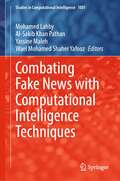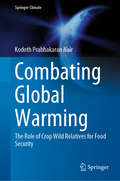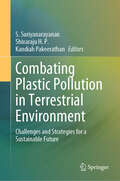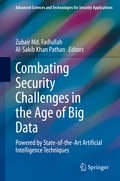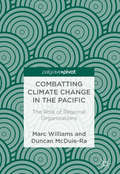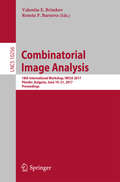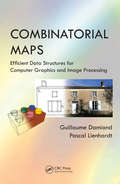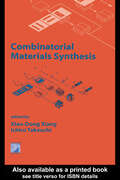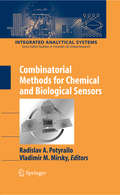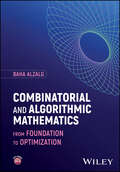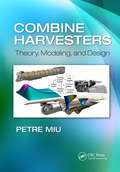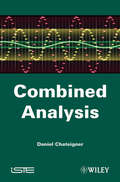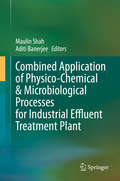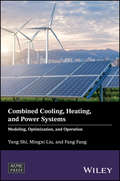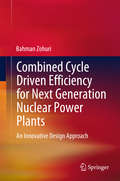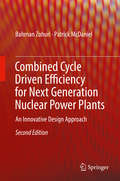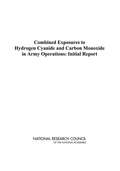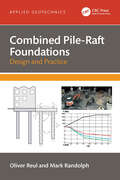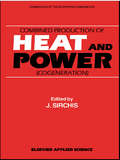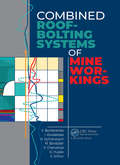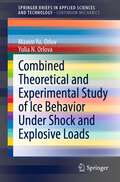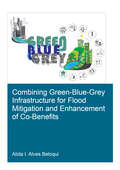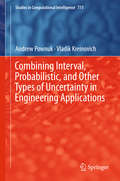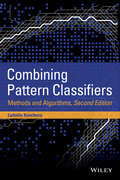- Table View
- List View
Combating Fake News with Computational Intelligence Techniques (Studies in Computational Intelligence #1001)
by Al-Sakib Khan Pathan Yassine Maleh Mohamed Lahby Wael Mohamed Shaher YafoozThis book presents the latest cutting-edge research, theoretical methods, and novel applications in the field of computational intelligence techniques and methods for combating fake news. Fake news is everywhere. Despite the efforts of major social network players such as Facebook and Twitter to fight disinformation, miracle cures and conspiracy theories continue to rain down on the net. Artificial intelligence can be a bulwark against the diversity of fake news on the Internet and social networks. This book discusses new models, practical solutions, and technological advances related to detecting and analyzing fake news based on computational intelligence models and techniques, to help decision-makers, managers, professionals, and researchers design new paradigms considering the unique opportunities associated with computational intelligence techniques. Further, the book helps readers understand computational intelligence techniques combating fake news in a systematic and straightforward way.
Combating Global Warming: The Role of Crop Wild Relatives for Food Security (Springer Climate)
by Kodoth Prabhakaran NairThis book critically examines the environmental hazards posed by global warming with regard to future food security, which will depend on a combination of stresses, both biotic and abiotic, imposed by climate change; variability of weather within a growing season; and the development of cultivars that are more sensitive to different ambient conditions. Furthermore, the ability to develop effective adaptive strategies which allow these cultivars to express their genetic potential under changing climate conditions will be essential. In turn, the book investigates those plant species which are very closely related to field crops and have the potential to contribute beneficial traits for crop improvement, e.g. resistance to a wide range of biotic and abiotic stresses, enriching the gene pool, and ultimately leading to enhanced plant yield, known as “Crop Wild Relatives” (CWRs). CWRs hold tremendous potential to sustain and enhance global food security, contributing to human well-being. Accordingly, their development, characterization and conservation in crop breeding programs have assumed great practical importance.Professor Kodoth Prabhakaran Nair is an internationally acclaimed agricultural scientist, with over three decades of experience in Europe, Africa and Asia, holding some of the most prestigious academic positions, including the National Chair of the Science Foundation, The Royal Society, Belgium. A Senior Fellow of the world renowned Alexander von Humboldt Research Foundation of The Federal Republic of Germany, he is best known, globally, for having developed a revolutionary soil management technique, known as "The Nutrient Buffer Power Concept", which, while questioning the scientific fallacies of the highly soil extractive farming, euphemistically known as the "green revolution", has opened up an alternative path for sensible and scientific soil management
Combating Plastic Pollution in Terrestrial Environment: Challenges and Strategies for a Sustainable Future
by Kandiah Pakeerathan S. Suriyanarayanan Shivaraju H. P.This book explores the challenges posed by plastic pollution in terrestrial environment and focuses on the reuse of plastic waste for sustainable practices, as well as the challenges and innovative approaches to combat the growing plastic crisis. This book is intended for a diverse audience including researchers, policymakers, environmental professionals, educators, technocrats, and researchers/students interested in advancing knowledge and action on plastic pollution in terrestrial environment. 27 chapters included in the book are contributed by scientists, researchers and policymakers from 12 countries, namely Bangladesh, Egypt, India, Iraq, Malaysia, Mauritius, Mexico, Myanmar, Nepal, Pakistan, Sri Lanka, and Taiwan.
Combating Security Challenges in the Age of Big Data: Powered by State-of-the-Art Artificial Intelligence Techniques (Advanced Sciences and Technologies for Security Applications)
by Zubair Md. Fadlullah Al-Sakib Khan PathanThis book addresses the key security challenges in the big data centric computing and network systems, and discusses how to tackle them using a mix of conventional and state-of-the-art techniques. The incentive for joining big data and advanced analytics is no longer in doubt for businesses and ordinary users alike. Technology giants like Google, Microsoft, Amazon, Facebook, Apple, and companies like Uber, Airbnb, NVIDIA, Expedia, and so forth are continuing to explore new ways to collect and analyze big data to provide their customers with interactive services and new experiences. With any discussion of big data, security is not, however, far behind. Large scale data breaches and privacy leaks at governmental and financial institutions, social platforms, power grids, and so forth, are on the rise that cost billions of dollars. The book explains how the security needs and implementations are inherently different at different stages of the big data centric system, namely at the point of big data sensing and collection, delivery over existing networks, and analytics at the data centers. Thus, the book sheds light on how conventional security provisioning techniques like authentication and encryption need to scale well with all the stages of the big data centric system to effectively combat security threats and vulnerabilities. The book also uncovers the state-of-the-art technologies like deep learning and blockchain which can dramatically change the security landscape in the big data era.
Combatting Climate Change in the Pacific: The Role of Regional Organizations
by Marc Williams Duncan McDuie-RaThis book analyses the regional complexes of climate security in the Pacific. Pacific Island States and Territories (PICTs) have long been cast as the frontline of climate change and placed within the grand architecture of global climate governance. The region provides compelling new insights into the ways climate change is constructed, governed, and shaped by (and in turn shapes), regional and global climate politics. By focusing on climate security as it is constructed in the Pacific and how this concept mobilises resources and shapes the implementation of climate finance, the book provides an up-to-date account of the way regional organizations in the Pacific have contributed to the search for solutions to the problem of climate insecurity. In the context of the United Nations Climate Change Conference (COP21) in Paris in 2015, the focus of this book on regional governance offers a concise and innovative account of climate politics in the prevailing global context and one with implications for the study of climate security in other regions, particularly in the developing world.
Combinatorial Image Analysis: 18th International Workshop, IWCIA 2017, Plovdiv, Bulgaria, June 19-21, 2017, Proceedings (Lecture Notes in Computer Science #10256)
by Reneta P. Barneva Valentin E. BrimkovIt is indeed a great pleasure to welcome you to the proceedings of the 12th International Workshop on Combinatorial Image Analysis (IWCIA 2008) held in Bu?alo, NY, April 7-9, 2008. Image analysis is a scienti?c discipline providing theoretical foundations and methods for solving problems that appear in various areas of human practice, as diverseas medicine, robotics, defense, andsecurity. As a rule, the processeddata are discrete; thus, the "discrete," or "combinatorial"approachto image analysis appears to be a natural one and therefore its importance is increasing. In fact, combinatorial image analysis often provides various advantages (in terms of - ciency and accuracy) over the more traditional approaches based on continuous models requiring numeric computation. The IWCIA workshop series provides a forum for researchers throughout the world to present cutting-edge results in combinatorial image analysis, to discuss recent advances in this research ?eld, and to promote interaction with researchersfromothercountries. Infact, IWCIA2008retainedandevenenriched the international spirit of these workshops, that had successful prior meetings in Paris (France) 1991, Ube (Japan) 1992, Washington DC (USA) 1994, Lyon (France) 1995, Hiroshima (Japan) 1997, Madras (India) 1999, Caen (France) 2000, Philadelphia (USA) 2001, Palermo (Italy) 2003, Auckland (New Zealand) 2004, and Berlin (Germany) 2006. The IWCIA 2008 Program Committee was highly international as its members are renowned experts coming from 23 di?- entcountries, andsubmissionscamefrom24countriesfromAfrica, Asia, Europe, North and South America.
Combinatorial Maps: Efficient Data Structures for Computer Graphics and Image Processing
by Guillaume Damiand Pascal LienhardtA Versatile Framework for Handling Subdivided Geometric ObjectsCombinatorial Maps: Efficient Data Structures for Computer Graphics and Image Processing gathers important ideas related to combinatorial maps and explains how the maps are applied in geometric modeling and image processing. It focuses on two subclasses of combinatorial maps: n-Gmaps an
Combinatorial Materials Synthesis
by Xiao-Dong Xiang Ichiro TakeuchiPioneered by the pharmaceutical industry and adapted for the purposes of materials science and engineering, the combinatorial method is now widely considered a watershed in the accelerated discovery, development, and optimization of new materials. Combinatorial Materials Synthesis reveals the gears behind combinatorial materials chemistry and thin-
Combinatorial Methods for Chemical and Biological Sensors (Integrated Analytical Systems)
by Vladimir M. Mirsky Radislav A. PotyrailoChemical sensors are in high demand for applications as varied as water pollution detection, medical diagnostics, and battlefield air analysis. Designing the next generation of sensors requires an interdisciplinary approach. The book provides a critical analysis of new opportunities in sensor materials research that have been opened up with the use of combinatorial and high-throughput technologies, with emphasis on experimental techniques. For a view of component selection with a more computational perspective, readers may refer to the complementary volume of Integrated Analytical Systems edited by M. Ryan et al., entitled "Computational Methods for Sensor Material Selection".
Combinatorial and Algorithmic Mathematics: From Foundation to Optimization
by Baha AlzalgDetailed review of optimization from first principles, supported by rigorous math and computer science explanations and various learning aids Supported by rigorous math and computer science foundations, Combinatorial and Algorithmic Mathematics: From Foundation to Optimization provides a from-scratch understanding to the field of optimization, discussing 70 algorithms with roughly 220 illustrative examples, 160 nontrivial end-of-chapter exercises with complete solutions to ensure readers can apply appropriate theories, principles, and concepts when required, and Matlab codes that solve some specific problems. This book helps readers to develop mathematical maturity, including skills such as handling increasingly abstract ideas, recognizing mathematical patterns, and generalizing from specific examples to broad concepts. Starting from first principles of mathematical logic, set-theoretic structures, and analytic and algebraic structures, this book covers both combinatorics and algorithms in separate sections, then brings the material together in a final section on optimization. This book focuses on topics essential for anyone wanting to develop and apply their understanding of optimization to areas such as data structures, algorithms, artificial intelligence, machine learning, data science, computer systems, networks, and computer security. Combinatorial and Algorithmic Mathematics includes discussion on: Propositional logic and predicate logic, set-theoretic structures such as sets, relations, and functions, and basic analytic and algebraic structures such as sequences, series, subspaces, convex structures, and polyhedraRecurrence-solving techniques, counting methods, permutations, combinations, arrangements of objects and sets, and graph basics and propertiesAsymptotic notations, techniques for analyzing algorithms, and computational complexity of various algorithmsLinear optimization and its geometry and duality, simplex and non-simplex algorithms for linear optimization, second-order cone programming, and semidefinite programming Combinatorial and Algorithmic Mathematics is an ideal textbook resource on the subject for students studying discrete structures, combinatorics, algorithms, and optimization. It also caters to scientists across diverse disciplines that incorporate algorithms and academics and researchers who wish to better understand some modern optimization methodologies.
Combine Harvesters: Theory, Modeling, and Design
by Petre MiuFrom Basic Fundamentals to Advanced Design ApplicationsA culmination of the author's more than 20 years of research efforts, academic papers, and lecture notes, Combine Harvesters: Theory, Modeling, and Design outlines the key concepts of combine harvester process theory and provides you with a complete and thorough understanding of combine harvest
Combined Analysis (Wiley-iste Ser.)
by Daniel ChateignerThis book introduces and details the key facets of Combined Analysis - an x-ray and/or neutron scattering methodology which combines structural, textural, stress, microstructural, phase, layer, or other relevant variable or property analyses in a single approach. The text starts with basic theories related to diffraction by polycrystals and some of the most common combined analysis instrumental set-ups are detailed. Also discussed are microstructures of powder diffraction profiles; quantitative phase analysis from the Rietveld analysis; residual stress analysis for isotropic and anisotropic materials; specular x-ray reflectivity, and the various associated models.
Combined Application of Physico-Chemical & Microbiological Processes for Industrial Effluent Treatment Plant
by Aditi Banerjee Maulin ShahIn recent decades, scientific insight into the chemistry of water has increased enormously, leading to the development of advanced wastewater and water purification technologies. However, the quality of freshwater resources has continually deteriorated worldwide, both in industrialized and developing countries. Although traditional wastewater technologies focus on the removal of suspended solids, nutrients and bacteria, hundreds of organic pollutants occur in wastewater and urban surface waters. These new pollutants are synthetic or naturally occurring chemicals that are not often monitored in the environment but have the potential to enter the environment and cause known or suspected adverse ecological and / or human health effects. Collectively referred to as the "emerging contaminants," they are mostly derived from domestic use and occur in trace concentrations ranging from pico to micrograms per liter. Environmental contaminants are resistant to conventional wastewater treatment processes and most of them remain unaffected, leading to the contamination of the receiving water. As such, there is a need for advanced wastewater treatment process that is capable of removing environmental contaminants to ensure safe fresh water supplies. This book explains the biological and chemical wastewater treatment technologies. The biological wastewater treatment processes presented include: (1) bioremediation of wastewater such as aerobic and anaerobic treatment; (2) phytoremediation of wastewater using engineered wetlands, rhizofiltration, rhizodegradation, phytodegradation, phytoaccumulation, phytotransformation and hyperaccumulators; and (3) mycoremediation of wastewater. The chemical wastewater treatment processes discussed include chemical precipitation, ion exchange, neutralization, adsorption and disinfection. In addition, the book describes wastewater treatment plants in terms of plant size, layout and design as well as installation location. Also presenting the latest, innovative effluent water treatment processes, it is a valuable resource for biochemical and wastewater treatment engineers, environmental scientists and environmental microbiologists.
Combined Cooling, Heating, and Power Systems: Modeling, Optimization, and Operation
by Yang Shi Fang Fang Mingxi LiuA comprehensive review of state-of-the-art CCHP modeling, optimization, and operation theory and practice This book was written by an international author team at the forefront of combined cooling, heating, and power (CCHP) systems R&D. It offers systematic coverage of state-of-the-art mathematical modeling, structure optimization, and CCHP system operation, supplemented with numerous illustrative case studies and examples. CCHP systems are an exciting emerging energy technology offering significant economic and environmental benefits. Combined Cooling, Heating, and Power Systems: Modelling, Optimization, and Operation is a timely response to ongoing efforts to maximize the efficiency of that technology. It begins with a survey of CCHP systems from the technological and societal perspectives, offering readers a broad and stimulating overview of the field. It then digs down into topics crucial for optimal CCHP operation. Discussions of each topic are carefully structured, walking readers from introduction and background to technical details. A set of new methodologies for the modeling, optimization and control of CCHP systems are presented within a unified framework. And the authors demonstrate innovative solutions to a variety of CCHP systems problems using new approaches to optimal power flow, load forecasting, and system operation design. Provides a comprehensive review of state-of-the-art of CCHP system development Presents new methodologies for mathematical modeling, optimization, and advanced control Combines theoretical rigor with real-world application perspectives Features numerous examples demonstrating an array of new design strategies Reflects the combined experience of veteran researchers in the field whose contributions are well recognized within the energy community Offers excellent background reading for students currently enrolled in the growing number of courses on energy systems at universities worldwide Timely, authoritative, and offering a balanced presentation of theory and practice, Combined Cooling, Heating, and Power Systems: Modelling, Optimization, and Operation is a valuable resource forresearchers, design practitioners, and graduate students in the areas of control theory, energy management, and energy systems design.
Combined Cycle Driven Efficiency for Next Generation Nuclear Power Plants: An Innovative Design Approach
by Bahman ZohuriIntroduces the concept of combined cycles for next generation nuclear power plants, explaining how recent advances in gas turbines have made these systems increasingly desirable for efficiency gains and cost-of-ownership reduction. Promulgates modelling and analysis techniques to identify opportunities for increased thermodynamic efficiency and decreased water usage over current Light Water Reactor (LWR) systems. Examines all power conversion aspects, from the fluid exiting the reactor to energy releases into the environment, with special focus on heat exchangers and turbo-machinery. Provides examples of small projects to facilitate nuanced understanding of the theories and implementation of combined-cycle nuclear plants. This book explores combined cycle driven efficiency of new nuclear power plants and describes how to model and analyze a nuclear heated multi-turbine power conversion system operating with atmospheric air as the working fluid. The included studies are intended to identify paths for future work on next generation nuclear power plants (GEN-IV), leveraging advances in natural-gas-fired turbines that enable coupling salt-cooled, helium-cooled, and sodium-cooled reactors to a Nuclear Air-Brayton Combined Cycle (NACC). These reactors provide the option of operating base-load nuclear plants with variable electricity output to the grid using natural gas or stored heat to produce peak power. The author describes overall system architecture, components and detailed modelling results of Brayton-Rankine Combined Cycle power conversion systems and Recuperated Brayton Cycle systems, since they offer the highest overall energy conversion efficiencies. With ever-higher temperatures predicted in GEN-IV plants, this book's investigation of potential avenues for thermodynamic efficiency gains will be of great interest to nuclear engineers and researchers, as well as power plant operators and students.
Combined Cycle Driven Efficiency for Next Generation Nuclear Power Plants: An Innovative Design Approach
by Bahman Zohuri Patrick McDanielIntroduces the concept of combined cycles for next generation nuclear power plants, explaining how recent advances in gas turbines have made these systems increasingly desirable for efficiency gains and cost-of-ownership reduction. Promulgates modelling and analysis techniques to identify opportunities for increased thermodynamic efficiency and decreased water usage over current Light Water Reactor (LWR) systems. Examines all power conversion aspects, from the fluid exiting the reactor to energy releases into the environment, with special focus on heat exchangers and turbo-machinery. Provides examples of small projects to facilitate nuanced understanding of the theories and implementation of combined-cycle nuclear plants. This book explores combined cycle driven efficiency of new nuclear power plants and describes how to model and analyze a nuclear heated multi-turbine power conversion system operating with atmospheric air as the working fluid. The included studies are intended to identify paths for future work on next generation nuclear power plants (GEN-IV), leveraging advances in natural-gas-fired turbines that enable coupling salt-cooled, helium-cooled, and sodium-cooled reactors to a Nuclear Air-Brayton Combined Cycle (NACC). These reactors provide the option of operating base-load nuclear plants with variable electricity output to the grid using natural gas or stored heat to produce peak power. The author describes overall system architecture, components and detailed modelling results of Brayton-Rankine Combined Cycle power conversion systems and Recuperated Brayton Cycle systems, since they offer the highest overall energy conversion efficiencies. With ever-higher temperatures predicted in GEN-IV plants, this book's investigation of potential avenues for thermodynamic efficiency gains will be of great interest to nuclear engineers and researchers, as well as power plant operators and students.
Combined Exposures to Hydrogen Cyanide and Carbon Monoxide in Army Operations: Initial Report
by National Research Council of the National AcademiesIn response to a request from the U.S. Army, a committee convened by the National Research Council (NRC) conducted the first in a sequence of studies evaluating the combined health effects of low-level exposure to two chemicals Army personnel are likely to be exposed to in firing tank weapons. The Army sought information on whether the two chemicals, hydrogen cyanide and carbon monoxide, result in similar health impacts and should be assessed together when establishing exposure limits. Based on a review of the scientific literature, the report finds that the biochemical health impacts of the chemicals are similar and that the Army's proposed approach to setting exposure limits is appropriate. Because previous research has focused on high exposures, this initial NRC report recommends that futher neurological studies at low concentrations of exposure to the chemicals be conducted.
Combined Pile-Raft Foundations: Design and Practice (Applied Geotechnics)
by Mark Randolph Oliver ReulThis book presents the fundamental features of the design and performance of combined pile-raft foundations (CPRFs). Whereas in a traditional foundation the loads are carried either by the raft or by the piles, the capacity of CPRFs is assessed for the foundation as a whole, reducing total and differential settlements economically.The five chapters provide an overview of the historical development of piled rafts in practice and research, and of the design concepts developed for piled rafts over the last decades. Fundamental aspects of their bearing behaviour are presented, as well as an overview of the framework of the design process for CPRFs, including the safety concept, the design approach summarised in the ISSMGE Combined Pile-Raft Foundation Guideline (ISSMGE TC 212 2013) and the interaction between structural and geotechnical engineering. For numerical analysis based on the finite element method, guidance is given on creating the model and performing the calculations before providing basic information on the requirements for the site investigation, supervision of the construction process and monitoring of the foundation performance. Detailed case studies illustrate the design and performance of CPRFs, and a design example for the foundation of a multi-storey office building founded in non-cohesive soil is investigated, carrying out 3D finite element analysis to estimate deformations and design parameters for structural engineering.Based on the combined experience of the authors obtained in the last decades working in the industry and research, the book particularly suits consulting engineers engaged in foundation engineering, as well as graduate students and researchers interested in the bearing behaviour of piled rafts and pile groups.
Combined Production of Heat and Power
by J. SirchisProceedings of a European seminar organized by the CEC, Directorate-General for Energy and the Instituto para la Diversificacion y Ahorro de la Energia Eua (IDEA) with the cooperation of Gomez Pardo Foundation's Energy Commission, Madrid, Spain, 10-11 October 1989.
Combined Roof-Bolting Systems of Mine Workings
by V. Bondarenko, I. Kovalevska, H. Symanovych, M. Barabash, V. Chervatiuk, O. Husiev and V. SnihurThe basic principles of geomechanical processes occurring in mine workings during the extraction of minerals are discussed in this monograph. Particular attention is paid to the support system, specifically to the various roof-bolt and frame support designs, and also to the modern means providing resource-saving conditions for ensuring mine workings sustainability. The basic principles of the computing experiment performance at the modelling of geomechanical processes are also presented and the stress-strain state of "rock massif – mine working support" systems are investigated. Finally, the results of field studies are discussed and illustrated. Modern studies are presented in this work, the advanced support systems are introduced and the solution to the problem of low-cost rock pressure control in mine workings is described. Further the unique study in the thin-layer massif of weak rocks is conducted and the technical and economic aspects of mine workings maintenance during rocks heaving are described. The book will be of interest to scientists in research and design organizations in the mining sector, engineers and technological workers in mines, as well as university academics and students.
Combined Theoretical and Experimental Study of Ice Behavior Under Shock and Explosive Loads (SpringerBriefs in Applied Sciences and Technology)
by Maxim Yu. Orlov Yulia N. OrlovaThe book presents theoretical and experimental studies of ice fracturing process during impact and explosion load. It shows how to obtain ice in natural and artificial conditions. The book summarizes the results of full-scale experiments for 5 years on undermining ice sheets with emulsion explosives. It presents an algorithm that simulates the process of fracturing of thick ice subjected to blast load, showing that the behavior of ice under impact and explosive loads can be described by a model of continuum mechanics. Qualitative and quantitative assessments of the ballistic perfomance of an ice cube after deep penetration low-velocity projectiles are reported in this book. Some pilot problems are formulated for a deeper understanding of the mechanics of ice fracturing during impact and explosion.
Combined-Cycle Gas & Steam Turbine Power Plants
by Rolf Kehlhofer Bert Rukes Frank Hannemann Franz StirnimannWith this third edition, international expert Rolf Kehlhofer leads a team of eminent engineers for the long awaited update of the "bible" for combined-cycle plants.Combined-Cycle Gas & Steam Turbine Power Plants, 3rd Edition, is a comprehensive overview of the combined-cycle power plant from a thermodynamic, technical, and economic viewpoint. This new edition gives readers the latest technological developments and practical examples from existing, state-of-the-art combined-cycle plants. Both practicing engineers and engineering students will find this book the definitive work on combined-cycle power plants.
Combining Green-Blue-Grey Infrastructure for Flood Mitigation and Enhancement of Co-Benfits (IHE Delft PhD Thesis Series)
by Alida I Alves BeloquiAn increment of urban flood risk in many areas around the globe is expected, accentuated due to climate change and urbanisation. Thus, appropriate flood risk management is crucial. Conventional approaches focus on grey infrastructure, which frequently do not address the root causes of risk. A change of paradigm is needed to develop effective adaptation strategies. Green-blue infrastructure (GBI) is a central concept to achieve adaptation to climate change. Its main strength is the ability to deliver multiple benefits. Although strong evidence exists demonstrating that GBI is a sustainable solution to reduce flooding, its adoption is still slow. Therefore, the objective of this research is to help decision-makers to adopt adaptation strategies to cope with flood risk while achieving other benefits. This study provides a framework which introduces co-benefits into decision-making for stormwater infrastructure planning. Besides, the multiple benefits are quantified and their impact on helping GBI implementation are evaluated. Finally, the effects of including co-benefits on the selection of flood mitigation strategies and the trade-offs among cost and benefits are assessed. This work contributes to enhance planning processes for flood mitigation combining green-blue-grey measures. It provides tools and knowledge to facilitate holistic decision-making, in order to ensure safe and liveable urban spaces for current and future conditions.
Combining Interval, Probabilistic, and Other Types of Uncertainty in Engineering Applications (Studies In Computational Intelligence #773)
by Vladik Kreinovich Andrew PownukHow can we solve engineering problems while taking into account data characterized by different types of measurement and estimation uncertainty: interval, probabilistic, fuzzy, etc.? This book provides a theoretical basis for arriving at such solutions, as well as case studies demonstrating how these theoretical ideas can be translated into practical applications in the geosciences, pavement engineering, etc.In all these developments, the authors’ objectives were to provide accurate estimates of the resulting uncertainty; to offer solutions that require reasonably short computation times; to offer content that is accessible for engineers; and to be sufficiently general - so that readers can use the book for many different problems. The authors also describe how to make decisions under different types of uncertainty.The book offers a valuable resource for all practical engineers interested in better ways of gauging uncertainty, for students eager to learn and apply the new techniques, and for researchers interested in processing heterogeneous uncertainty.
Combining Pattern Classifiers
by Ludmila I. KunchevaCombined classifiers, which are central to the ubiquitous performance of pattern recognition and machine learning, are generally considered more accurate than single classifiers. In a didactic, detailed assessment, Combining Pattern Classifiers examines the basic theories and tactics of classifier combination while presenting the most recent research in the field. Among the pattern recognition tasks that this book explores are mail sorting, face recognition, signature verification, decoding brain fMRI images, identifying emotions, analyzing gene microarray data, and spotting patterns in consumer preference. This updated second edition is equipped with the latest knowledge for academics, students, and practitioners involved in pattern recognition fields.
